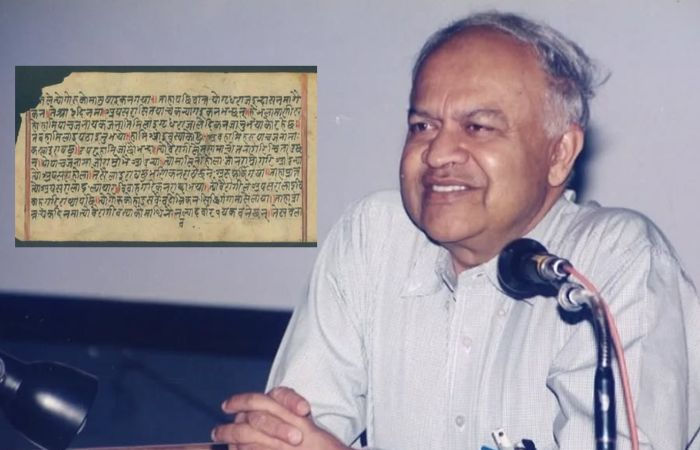India lost its legendary pioneer astrophysicist, Dr Jayant Narlikar on May 20, at the age of 86 years. Dr Narlikar had a special connection with the Oriental Institute of Maharaja Sayajirao University of Baroda as he had donated 12 manuscripts to the institute, which are still preserved there today.
Dr Shweta Prajapati, director of Oriental Institute mentioned that Dr Narlikar had a deep interest in manuscripts. The then-director of the Oriental Institute, Dr M L Wadekar, was acquainted with Dr Jayant Narlikar and had discussed manuscripts with him. Dr Wadekar had requested him to donate manuscripts to the Oriental Institute, on which he agreed.
Some manuscripts donated by Dr Narlikar
| Manuscript Name | Year |
|---|---|
| Markandeya Purana | 1844 |
| Dharma Pravritti | 1693 |
| Anangaranga | 1784 |
| Vibhaga Tika | 1796 |
| Advaita Makaranda | 1805 |
| Suvarna Mukta Samvada | – |
| Alankarasara | – |
| Prabodha Sudhakara |
The man who challenged Big Bang Theory
Dr Narlikar made groundbreaking contributions to cosmology, challenged prevailing scientific orthodoxy, and dedicated himself to making science accessible to the broader public. Dr Narlikar is best known for co-developing the Hoyle–Narlikar theory of gravity—an alternative to Einstein’s general relativity—and for championing the ‘steady-state theory’ of the universe, a bold counterpoint to the widely accepted Big Bang model.
In 1988, he founded the Inter-University Centre for Astronomy and Astrophysics (IUCAA) in Pune, served as its first director and shaped it into a premier institution for research and training in astronomy.
He received numerous accolades, including the Padma Bhushan in 1965 and the Padma Vibhushan in 2004, India’s third and second-highest civilian honors, respectively . He was also honored with the UNESCO Kalinga Prize for the popularisation of science in 1996 and the Prix Jules Janssen from the French Astronomical Society in 2004.



